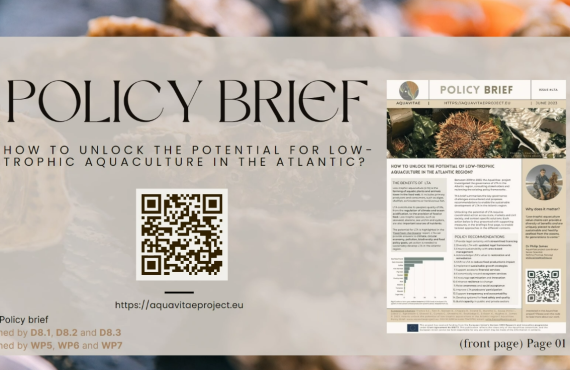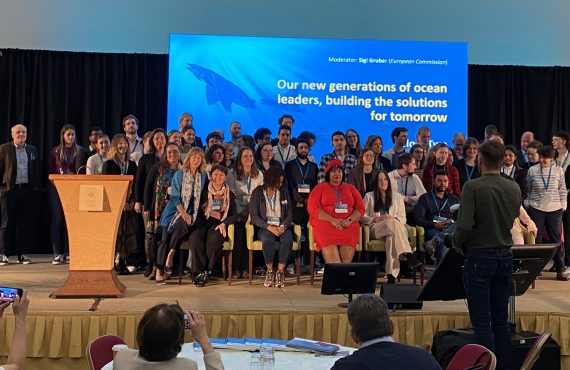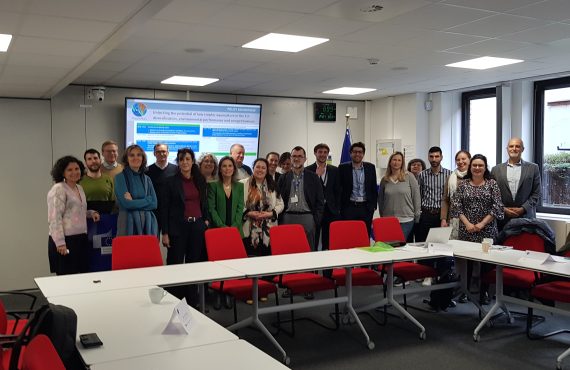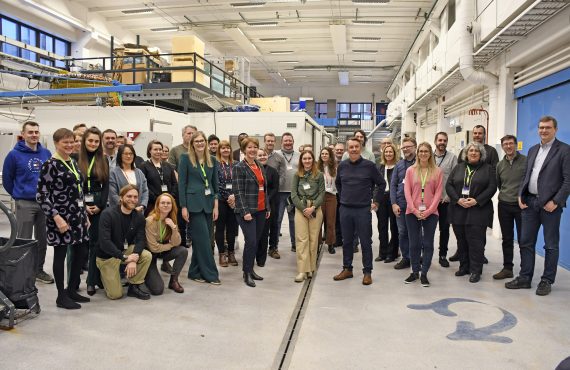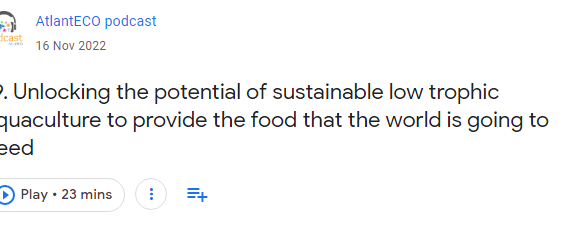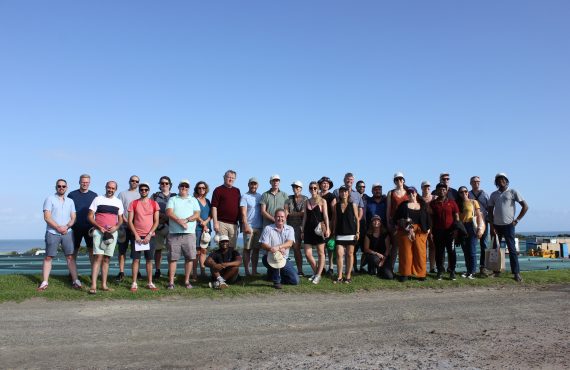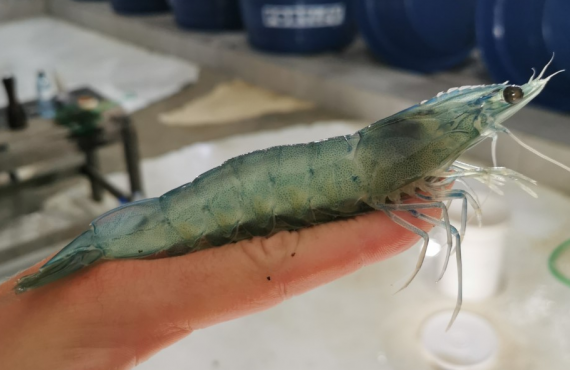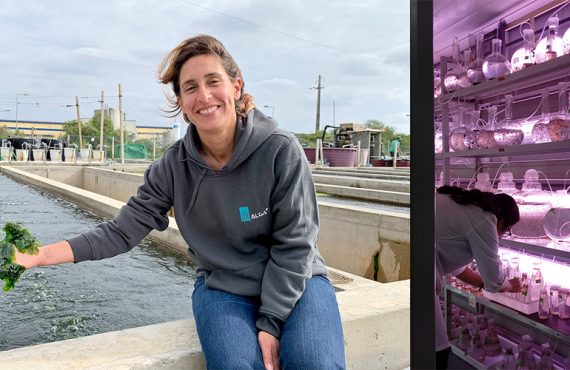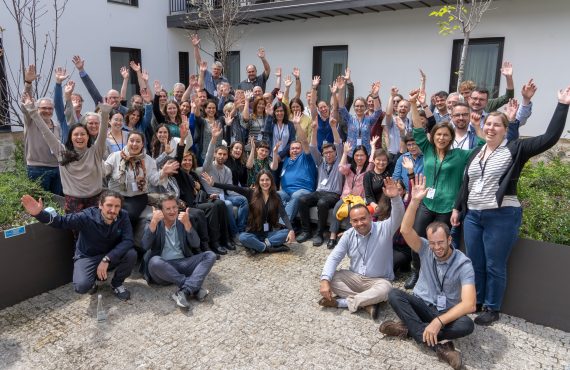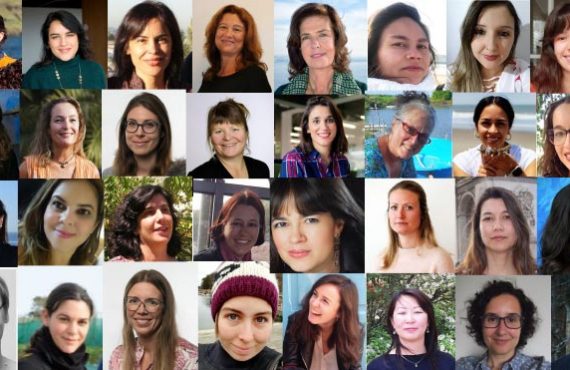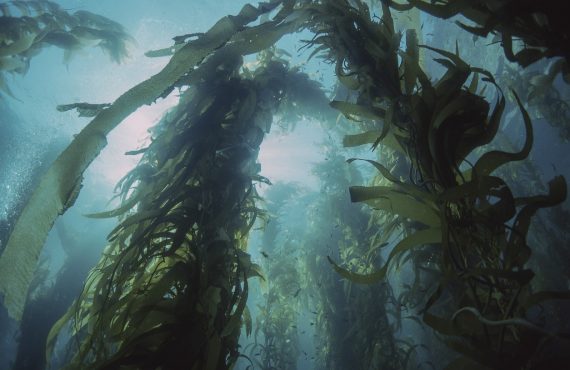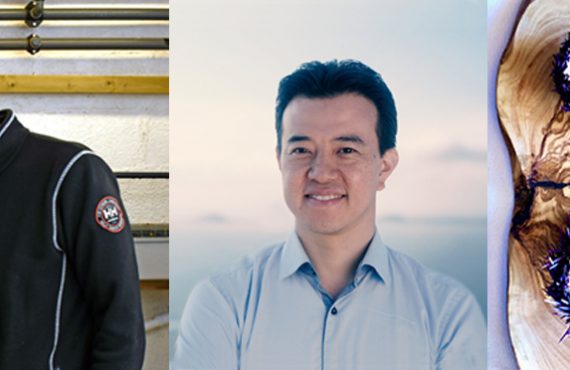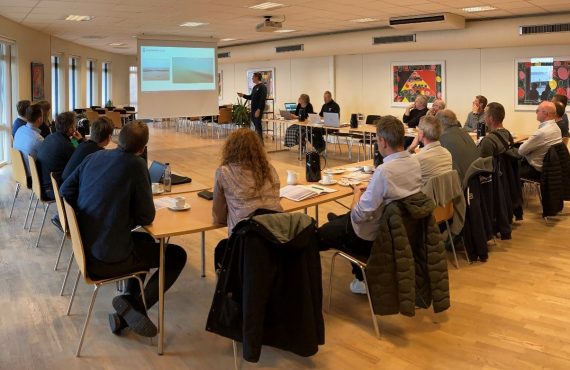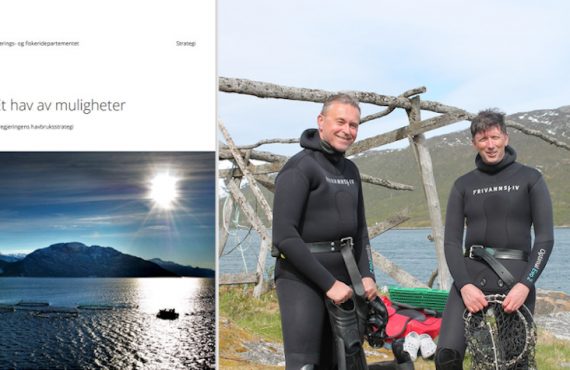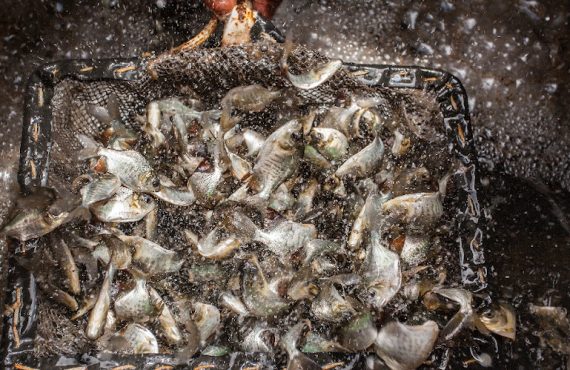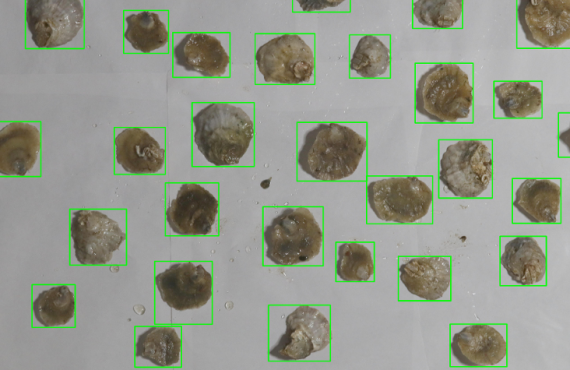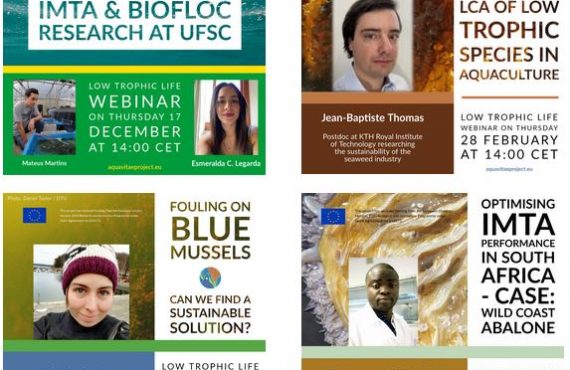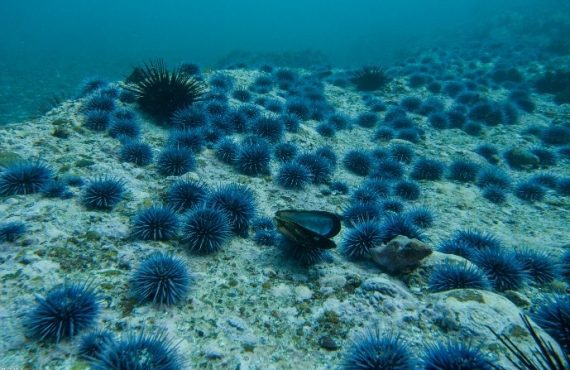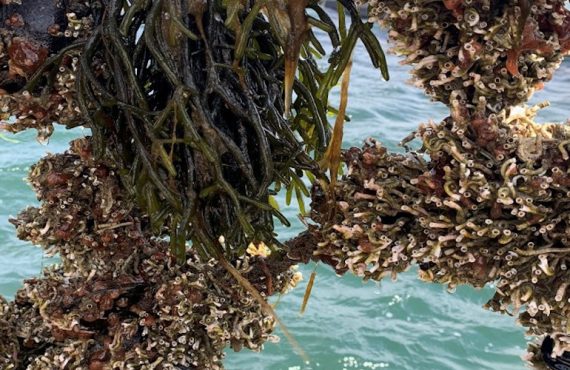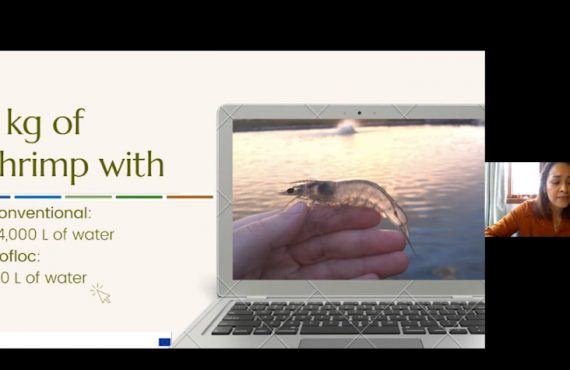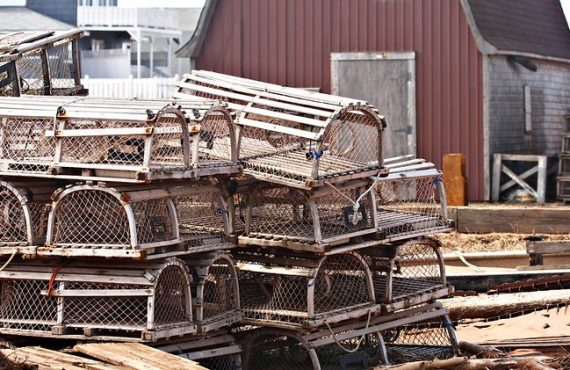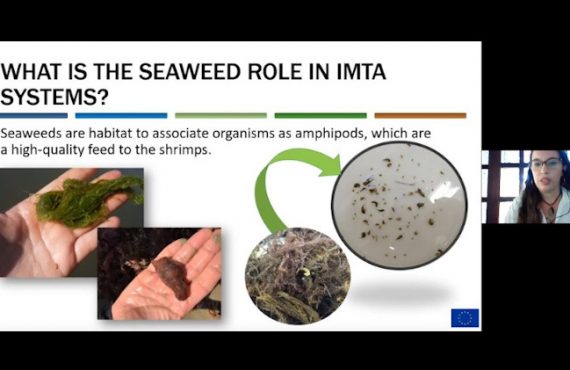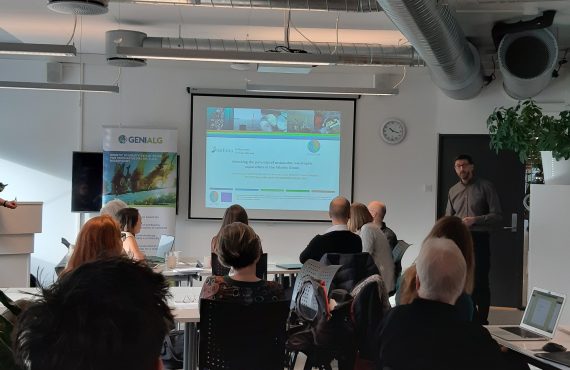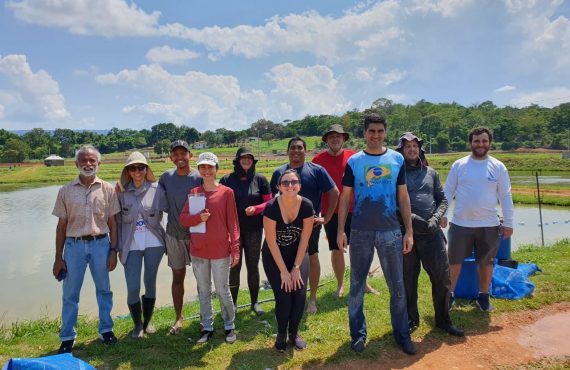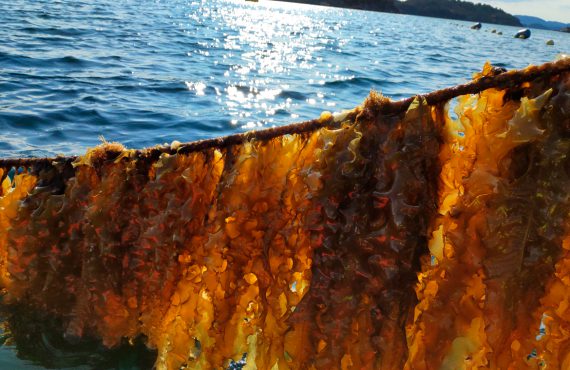AquaVitae ´s Policy Brief was officially launched to DG-MARE on April 15th. On April 15th AquaVitae held a Policy session along with DG MARE and CINEA. This final meeting gathered attendees in DG Mare premises (Brussels, Belgium) as well as online to discuss low trophic aquaculture (LTA), licensing, and regulations. After a
AquaVitae ´s Consortium in Galway, Ireland, during the Final Conference where the final results and impact of the project were presented. After four and a half years, the AquaVitae project held its Final Conference on the 31st October and 1st November in Galway, Ireland, at the Atlantic Technology University (ATU). Over
The AquaVitae Consortium warmly invite you to join us physically or online at our Final Meeting and Conference on 31st October and 1st November. The hybrid Conference event will take place in the Atlantic Technological University (ATU) facilities in Galway and can be followed online. The purpose of this final Conference is to present
AquaVitae and ASTRAL in booth 148 at EAS23 in Vienna, Austria The AquaVitae project is presenting some of its results at Europe Aquaculture, which takes place from 19-21 October in Vienna, Austria. AquaVitae is sharing stand 148 with its sister project ASTRAL. Among other results, AquaVitae will promote the MOOC (Free
All early career professionals and their mentors at the 10 years of the Galway Statement event. On Tuesday 5th July the Marine Institute, along with the Department of Foreign Affairs and the European Commission, co-hosted a high-level celebration in Iveagh House, Dublin, marking 10 years of the Galway Statement – a decade
Bio7000 by BIOLAN Sulphites are antioxidant agents widely used for extending food product´s shelf life or to maintain the colour in a wide variety of foods, such as nuts, meat or shrimp. However, sulphites are registered as allergens by the main international food safety regulatory bodies due to their potential adverse
Abalone produced at France Haliotis and tasted during AquaVitae´s presentation during the EMD2023. AquaVitae was present at European Maritime Day. The last edition of EMD was held in Brest, France, from 24th to 25th May. AquaVitae showcased the progresses and outcomes achieved in the final year of the project. Sylvain Huchette (pictured
Illustration for the SALTS MOOC: A.Kochanska, 2023. Sustainable Aquaculture for Low Trophic Species (SALTS) MOOC was officially launched at AquaVitae´s 4th annual meeting! The coordinator of the MOOC, Adrianna Kochanska (researcher at UiT, pictured in the middle), Michaela Aschan (professor at UiT, right),
AquaVitae partners in the UFSC ´s marine lab in Florianópolis, Brazil, during its 4th annual meeting. Photos: CETMAR & F. do Nascimento. The AquaVitae project held its 4th annual meeting from the 17th to 19th April in the Brazilian island of Florianópolis. The event was attended by 68 attendees, representing industry
CETMAR representing AquaVitae at AquaFuture Spain 2023. The AquaVitae partner CETMAR (Spain) attended the II International Aquaculture Fair, AQUAFUTURE SPAIN 2023, in Silleda, in Galicia, an important region for the fisheries and aquaculture sector at the northwest point of Spain. The event took place from 28th to 30th March.
AquaVitae project members joined representatives from the European Commission, advisory councils, industry and NGO´ at DG MARE, Brussels, for a policy roundtable. On March 15th, the AquaVitae policy roundtable “Unlocking the potential of low-trophic aquaculture in the EU: diversification, environmental performance and competitiveness” was held at DG MARE in Brussels, Belgium. The
AquaVitae roundtable will gathered important organizations to discuss the state of art of the low trophic aquaculture in Europe. On March 15th, 2023, the AquaVitae Consortium will hold a policy roundtable titled “Unlocking the potential of low-trophic aquaculture in the EU: diversification, environmental performance and competitiveness”. The event will take place
On the left, a green sea urchin (Strongylocentrotus droebachiensis) under normal light; on the right, excitation lighting. Note the red exudate being produced by the urchin that is not visible in normal lighting. Photos: Thomas Juhasz. By Thomas Juhasz, visiting AquaVitae PhD student at Nofima Aquaculture is a
Group picture of the network, including the mayor of Tromsø, Gunnar Wilhelmsen, in the middle. Tromsø (Norway), January 2023. Picture: Rune Stoltz Bertinussen. Sea urchins, seaweed snacks and cutting of sugar kelp during the Norwegian network launch on 25.-26. January. Nofima, together with project partners
ASTRAL & AquaVitae teams in front of their shared booth at Europe Aquaculture, Rimini, September 2022 The Belém Statement on Atlantic Research and Innovation Cooperation (2017) aims at building bridges across the Atlantic. Thus, AquaVitae has been collaborating to the Atlantic Research Community since the project began in 2019. In 2022 this
Camera and filmmaker: Rafael Méndez The AquaVitae project started in 2019. Since then, scientists and experts in different fields (from economics to policy) from 35 countries across the Atlantic work together to improve the future of aquaculture. This video showcases some of our activities and achievements. Learn how you can contribute
Wagner Valenti´s laboratory at the UNESP. AquaVitae´s partner Professor Wagner Cotroni Valenti was featured in Stanford’s List of the World’s Top Scientists. He was listed among the 2% of the most influential scientists of 2021 in the world in its relevant field. Wagner Valenti is a fellow of the World Aquaculture Society
Philip James, AquaVitae´s coordinator, featured on the AtlantECO podcast broadcasted on November 16th There are important collaborations in the framework of H2020 projects. Philip James, AquaVitae´s coordinator, featured on the AtlantECO podcast broadcasted on November 16th where he presented the project and its achievements. Do you want to listen to
Members of the AquaVitae Consortium in South Africa. Pictures by Pietro Di Modica. Thirty members of the AquaVitae consortium met face-to-face in Morgan Bay, South Africa from 15 to 18 November. At the scientific meeting participants exchanged scientific results and made plans for the final year of the project. The project
Whiteleg shrimp (Litopenaeus vannamei) – Photos: Stef Claessens By Stef Claessens, master student at the University of Algarve (Portugal) The global aquaculture production is growing immensely in all aspects and has already surpassed the output from wild caught fish and shellfish industries. Within this global aquaculture production, the
Abalone and sea urchin, the favourite species at the masterclass (pictures by Björn Suckow, AWI, and Yolanda Irawan, Cetmar)
Under the framework of the European AquaVitae project, France Haliotis organized along with the environmental organisation Ethic Ocean and
From left to right: Nolwenn Corre, chef invited to the Masterclass, and abalone (picture by Simon Cohen), one of the species cooked in the event. Aquavitae industrial partner France Haliotis organizes along with the environmental organisation Ethic Ocean and
Bas Wensveen fieldworking – Photos: Bas Wensveen By Bas Wensveen, master’s degree in Sweden at University of Gothenburg The flat oyster (Ostrea edulis) has almost completely disappeared in both natural and aquacultural environments all over Europe. The abandonment of the oyster within the aquaculture sector is mostly due to diseases and
From right to left: ALGAplus CEO, Helena Abreu, at the outdoor facilities. An employee working in the maternity room. Photos: © Alfonso Ré Lau and ALGAplus. ALGAplus is a Portuguese company that farms organic certified seaweed in a land-based facility, an alternative to wild harvesting which is still the origin of
IMTA site in in Sørvágsfjørður, Faroe Islands – Photos: Mayleen Schlund By Mayleen Schlund, student at Leibniz University Hannover Integrated-Multi-Trophic-Aquaculture (IMTA) has been implemented in aquaculture systems as a sustainable ecological approach to limit aquacultural impacts on aquatic environments. The integration of macroalgae, such as Saccharina latissima into IMTA can lead to
Speakers at AquaVitae´s workshop at EMD. From left to right: Philip James, Ólavur Gregersen, Ann Wu, Sylvain Huchette, Gercende Courtois, and Cliff Jones (online). Photo: ©AquaVitae. European Maritime Day (EMD) was celebrated in Ravenna, Italy, from 19th to 20th May. This year’s topic was Sustainable blue economy
EU Commissioner Virginijus Sinkevicius, CEO of Nofima Øyvind Fylling-Jensen, AquaVitae coordinator Philip James & sea urchins at Nofima While attending the conference Arctic Frontiers in Tromsø, EU commissioner for Environment, Oceans and Fisheries Virginijus Sinkevicius visited Nofima on the 10th of May. One of the topics discussed was
Speakers at AquaVitae´s workshop at EMD. From left to right: Ann Wu, Cliff Jones, Sylvain Huchette, Gercende Courtois, Ólavur Gregersen and Philip James (moderator of the round-table). Photo: AquaVitae European Maritime Day (EMD) is celebrated this year in Ravenna, Italy, from 19th to 20th May. This year’s
AquaVitae Consortium travelled from Europe, South Africa and Brazil to meet in Portugal. Photo: © Rafael Méndez Peña. 70 participants gathered in the third AquaVitae annual meeting that took place from April 26th to 28th in Porto, in the north of Portugal. It was the first time
From left to right up and down: seaweed, abalone, shrimp, blue mussels, oyster, sea cucumber, pirarucu and sea urchin. The AquaVitae consortium will meet in person in Porto, Portugal, where 70 project participants will join the third annual meeting of the Horizon 2020 project, in the first face-to-face annual meeting since
Nyiko Mabasa in her IMTA backyard – Photos: Nyiko Mabasa By Nyiko Mabasa, PhD researcher at Rhodes University, South Africa Aquaculture is the fastest growing food production sector globally. The sector may contribute to the sustainability of seafood harvests in the future. However, aquaculture operations produce large quantities of
A Whiteleg Shrimp (Litopeneaus vannamei) – Photos: Andressa Cristina Ramaglia da Mota By Andressa Cristina Ramaglia da Mota, PhD student at CAUNEST (Centre of Aquaculture at São Paulo State University) Aquaculture is the fastest growing food production sector in the world, accounting for over 50% of the global
Collage with women partners in AquaVitae Today we celebrate the incredible women without whom the AquaVitae project would not be possible! According to the European Commission, in 2019, women represented 23% of the workforce in the aquaculture sector, and just 3 out of 10 women are scientific researchers, says a FAO analysis. Unfortunately,
Seaweed forest in the ocean, a natural carbon sink that mitigates climate change Climate change is not something we could choose to believe in or not. It is a fact. Temperatures and the sea levels are rising, droughts are longer than usual, glaciers are shrinking, seasons are not scheduled as we
Abalone shells, a low-trophic species from the Atlantic Ocean By Ben Opara, masters’ degree in Marine Biotechnology from UIT Aquaculture is one of the fastest-growing food production sectors whose growth is expected to continue in the coming decades. However, and considering climate change, it is crucial that the sector is developed with
EATiP, ASTRAL and AquaVitae organized a side event in order to show what their collaboration might bring How can trans-Atlantic research collaboration help develop a more sustainable aquaculture industry? With this question in mind, AquaVitae, ASTRAL and EATiP organized a popular webinar which took place on the 3rd of June 2021, as a
From left to right: Philip James (coordinator of AquaVitae project), Brian Tsuyoshi Takeda (CEO and Founder of Urchinomics) and sea urchins – Photo: Nofima / Urchinomics The United Nations Decade of Ocean Science for Sustainable Development (2021-2030) recently announced that Urchinomics is to be formally endorsed as
Funchal, in the island of Madeira (Portugal) was the place where Europe Aquaculture celebrated 2021 edition By Gercende Courtois de Viçose, ULPGC, leader of the land-based IMTA case study More than 1400 participants from 57 countries met in Aquaculture Europe 21. This annual event
AquaVitae project provided some presentations and posters during Aquaculture Europe 2021 in Madeira, Portugal Once again, the European Aquaculture Society organized Aquaculture Europe. In 2021 edition Madeira, Portugal, was chosen to celebrate the event that took place last October. The island welcomed more than 1400 participants from
Mayleen Schlund, apprentice at the research station Fiskaaling, Faroe Islands – Photos: Mayleen Schlund Last summer Mayleen Schlund took part in AquaVitae training activities. The student exchange within the project framework allows the participants to expand their international networks and develop valuable transversal skills. Mayleen studies Physical Geography at the Leibniz University
Biosensor to monitore sulphite process in shrimp aquaculture – Photos: BIOLAN By Jone Garate, (PhD in Chemistry), Development and Validation Department in Biolan One of the most important challenges of food industry is to prevent contaminated products from reaching the market. Unsafe food containing bacteria, viruses or
DTU and Open Mode team over a floating connectable module – Photos: DTU and Open Mode The EMFF project OpenMode (2019-2021) has developed floating connectable modules for intensive farming in exposed areas in the Atlantic, Mediterranean, Baltic and North Sea basins. Two of the eight testers have
Blue mussel farmers, industry and NGOs joined DTU in a discussion on blue mussel production in Denmark on 26 October – Photos: DTU More than 15 stakeholders representing blue mussel farmers, industry, mangers and NGOS participated in the last AquaVitae case study meeting led by DTU and focused on aquaculture production
Left to right: cultivation of oysters on floating pillows at the Primar Aquacultura farm in Brazil and Márcia Kafensztok managing oyster seeds. Photos: Primar Aquacultura Márcia Kafensztok, who researches on the possibilities of Brazilian native oyster production and IMTA systems in Brazil, has been awarded first place in the Women of
Norwegian aquaculture strategy to the left. Minister Odd Emil Ingebrigtsen and AquaVitae coordinator Phil James about to go sea urchin diving in the Arctic ocean in June 2020. Photos: Norwegian Ministery of Trade, Industry and Fisheries. The AquaVitae project is highlighted as a successful example of international cooperation in aquaculture research. In
Tambaqui fingerlings. Jefferson Christoffoletti, EMBRAPA. Arapaima gigas, known locally as pirarucu, is the largest scaled freshwater species in the world and a strong candidate for aquaculture in Brazil. Alongside this giant of the Brazilian rivers, tambaqui (Colossoma macropomum) is the second freshwater species cultivated in the country,
Oyster clasification by image analysis. Photos by Åsa Strand, IVL. By Jens Wilhelmsson, engineer at IVL. One of the most valuable bivalve molluscs in Sweden is the flat oyster, Ostrea edulis. However, domestic production of oysters fails to meet the demand on the local market at the same
Screenshot with Elisa Ravagnan – ASTRAL, Philip James – AquaVitae and David Bassett – EATiP. What are the challenges and opportunities in trans-Atlantic research collaboration and the development of a sustainable Atlantic aquaculture industry? More than 100 participants from Europe, Africa, South and North America join online to discuss the challenges and opportunities on aquaculture
Collage with promotional images. Each month a young researcher in the AquaVitae project gets to show their work on sustainable aquaculture to the public. The recordings of the sessions are available here: Seaweeds as key components in pond IMTA systems; Stefany Almeida Pereira, UNESP Low
Urchin barren in California, USA. Photo by Urchinomics. By Urchinomics Urchinomics helps restore kelp forests by removing overgrazing sea urchins from urchin barrens, ranching them in proprietary aquaculture systems, and converting them into premium seafood. The urchin roe (“uni”) is then sold to top tier distributors, restaurants, and
A novel IMTA feed pellet for abalone. Photos by Emmanuel A. Falade and Marifeed. By Emmanuel A. Falade, PhD student at Rhodes University Abalone (Haliotis midae) aquaculture is South Africa’s largest aquaculture sector and an important socio-economic contributor in several coastal areas. The country now ranks as the
Linnea Sturdy (1991 – 2021) Our brilliant student Linnea Sturdy (1991 – 2021) passed away unexpectedly during the Easter weekend, April 2021. Linnea was a student at the Graduate Program in Ocean Food Systems at University of New England, Maine, USA, and was selected to be the first
Mangrove oysters production in Cananeia, Sao Paulo, in Brazil. Photo by Patricia Moraes-Valenti. By Patricia Moraes-Valenti, professor at the PhD Program in Aquaculture, UNESP The article “Aquaculture in Brazil: past, present and future¹” profoundly characterizes Brazil’s aquaculture sector based on the compilation of data from five official databases
Blue mussels at Bohus Havsbruk covered by fouling. Photos by Kristina Svedberg. By Kristina Svedberg, marine biologist at Swedish aquaculture company Bohus Havsbruk In Sweden, aquaculture is mainly situated on the west coast, due to the inflow of high salinity water from the North Sea and the
Shrimp water demands in a conventional versus a biofloc system. Slide by Esmeralda Chamorro. By Esmeralda Chamorro Legarda, postdoctoral student at the Federal University of Santa Catarina (UFSC). Shrimp cultivation in a traditional system needs a constant renewal of water to maintain the levels of compounds, which in
The Ocean Rainforest team. Photo by Ocean Rainforest. “The ocean is my business model and my designer partner, and it’s brutal”, Bren Smith, of Greenwave, a fisherman turned seaweed farmer, defined the challenge seaweed farmers experience when going offshore. AquaVitae’s case study on ‘Offshore macroalgae cultivation, led
Field work by IVL team focused on native oyster production. Photo: Åsa Strand. Seafood is the future. It is nutritious and healthy and an industry that has enormous growth potential. The new initiative Blue Food – Center for future seafood will make Sweden a leading producer of sustainable seafood, through a
Tanks for the culture of shrimp using biofloc technology at the Marine Shrimp Laboratory of the Federal University of Santa Catarina (UFSC), Florianópolis, Brazil. Photo by Mateus Aranha Martins By Mateus Aranha Martins, undergraduate student of Aquaculture Engineering at the Federal University of Santa Catarina (UFSC). In order to meet increasing demands
Lobster traps in Prince Edward Island, by Martin Cathrae. By Professor Barry Antonio Costa-Pierce, Program Coordinator In 2018, the University of New England launched a new Master’s program in Ocean Food Systems as an international education/training program that comprehensively examines
A figure showing the seaweed role in IMTA systems. Slide by Stefany Almeida Pereira, of UNESP. By Stefany Almeida Pereira, marine biologist at Universidade Estadual Paulista (Unesp). Designing a Ph.D. project is a challenge, especially when you aim to make a difference in society. I started my academic Ph.D. in innovation by
A dish with IMTA products: a shrimp hamburger, with Salicornia mayonnaise and an IMTA beer. Photo by Felipe Vieira, of UFSC. All AquaVitae partners in Brazil, the Federal University of Santa Catarina (UFSC), the Federal University of Rio Grande (FURG), the
A part of the UiT MOOC development team. Left to right: Adrianna Kochanska, Michaela Aschan, Kåre Nolde Nielsen, Hanne Risan Johnsen and Daniel Jensen. By Michaela Aschan, leader of training activities in AquaVitae. The importance of food production calls for a more sustainable approach to aquaculture. Climate change poses a threat to
Antonio A. Alonso (1966 – 2020) Our colleague and friend Antonio A. Alonso (1966 – 2020) passed away last Monday, September 28. He obtained an MSc in Chemical Engineering (1989), University of Santiago de Compostela, and did his PhD (1993) in the Department of Food Sciences and Technology, CSIC Institute of
Screenshot from the AquaVitae project movie. With a focus on sustainability and the possibilities of low-trophic species aquaculture, AquaVitae has released a promotional short film for the project work. The film outlines the role of the Atlantic Ocean as a shared food resource for coastal countries and the need to
Odd Emil Ingebrigtsen (Minister of Fisheries and Coastal Affairs) and Philip James (Scientist, Nofima) with their wetsuits on, ready to go diving for sea urchins outside Tromsø, Norway. Photo: Emil Bremnes / Nofima Author: Emil Bremnes, Communications adviser at Nofima AquaVitae coordinator Philip James (Nofima) went diving with the Norwegian Minister of
Photo collage with SDGs logos and photos of algae (AlgaPlus), abalone (Rhodes Univ.), mussels (CSIC), sea urchins (Nofima), oyster spat (Åsa Strand) and sea cucumber (AWI). A short survey (30 seconds approx..) on the Sustainable Development Goals (SDGs) related to low-trophic aquaculture is available at https://bit.ly/av-survey-sdgs. This anonymous survey will
Habitat surveys with Connemara Shellfish Co-Op at Cill Ciaran Bay Co. Galway, Ireland. Photo by Colin Hannon. Author: Colin Hannon, Leader of the work on Hatchery and Seedling Production in AquaVitae. GMIT – Ireland The Irish West Coast offers wildness, remoteness and clean waters. Conditions that are fit for purpose when we
Aerial view from Primar Aquacultura area. Photo credit: Erich Matos Rodrigues. From Northwest Brazil, Primar Aquacultura farms oysters, shrimp and sea horses together with an exhaustive respect for nature. Surrounded by the tropical landscape, the aquaculture farm is located in the estuary of the Nísia Floresta-Papeba-Guaraíras lagoon
Photos in collage: Jefferson Cristiano Christofoletti (man with tambaqui), Sylvain Huchette (abalone), ALGAplus (algae). Over 100 new prototypes for aquaculture value chains were presented last week, when researchers and aquaculture producers, from all over the Atlantic, met online to share results from the first year of the AquaVitae project. The
A team made up by Swedish aquaculture company Bohus havsbruk,the research Institute IVL and the Native Oyster Restoration Alliance (NORA) is looking for companies interested in evaluating a new protocol for pond based production of oyster spat. Culture
In February 2020, the Alfred-Wegener-Institute (AWI) attended a booth at the Fish International to disseminate AquaVitae to fish wholesalers, processors, food retailers, the hospitality industry and media. Fish International is the only professional trade fair in Germany for the fish industry. 10,302 attendees
On Tuesday 25 February the Bellona Foundation held a workshop in Oslo on the evaluation of the social and non-economic benefits of algae cultivation, and to analyze the policy frameworks and regulations in Norway. Two European H2020 funded projects Genialg and
Photo by Åsa Strand. On January the 28th, representatives from 13 different companies joined Dr. Åsa Strand, of IVL Swedish Environmental Research Institute, in a workshop to expand the production of native flat oysters (Ostrea edulis) in Sweden. Currently, this species is underexploited
Last month of December AquaVitae partner Empresa Brasileira de Pesquisa Agropecuaria (EmBraPa) organised the kick off meeting of the case study on freshwater finfish. Located in Palmas (Brazil), between the Amazon rainforest and the savanna, the meeting was focused on the aquaculture of tropical fish species tambaqui and pirarucu. Challenges
The Atlantic Ocean acts as common resource for Europe, Africa, North and South America, functioning as a platform for transport, leisure, and food. In Lisbon, on 2017, representatives of the European Commission, South Africa and Brazil signed the Belém Statement, an agreement to support and encourage research between countries joined
AquaVitae partner, ALGAplus, won the 2019 Millennium Horizons Award in the Tourism, Sea and Forests category. This is the 3rd edition of the contest promoted by the Portuguese Millennium BCP bank. With a record of 2,167 applications from 1,035 companies of all sizes, ALGAplus collected one of
Group photo of participants in the workshop in offshore aquacuture, in Sweden on October 16th-18th 2019. Authors: Asa Strand, leader of Environmental Monitoring work and Oysters Case Study in AquaVitae (IVL) & Kåre Nolde Nielsen, researcher in governance of fisheries and marine environments (
Photograph: Gareth Yearsley Leaders and participants in the case studies focused on land-based, sea-based Integrated Multi-trophic Aquaculture (IMTA) and sea cucumber aquaculture launched their activity in South Africa. Cliff Jones, leader of the case study on sea-based IMTA, Gercende Courtois de Viçose, leader
AquaVitae officer and Matís researcher, Valur N. Gunnlaugsson participated in the Marine Microbiome Workshop organised by AORA in Reykjavík on the 22nd of October. Working on the implementation of the Galway Statement, AORA joins the European Union, Canada and the United States in the work towards a healthy, resilient and safe Atlantic
AquaVitae, a new and innovative EU funded project, will have its own stand (#82) and participate in discussions on new aquaculture value chains at Aquaculture Europe 2019. Aquaculture Europe brings together all actors in the aquaculture value chain with about 3,000 participants from more than 109 different countries. In this
Low trophic aquaculture on the spotlight in new EU funded project Over 70 scientists and industry professionals from 16 countries gathered in Tromso, Norway to launch the EU funded AquaVitae project. Over the next four years, they will work to increase aquaculture production of low-trophic species in and around the Atlantic Ocean



